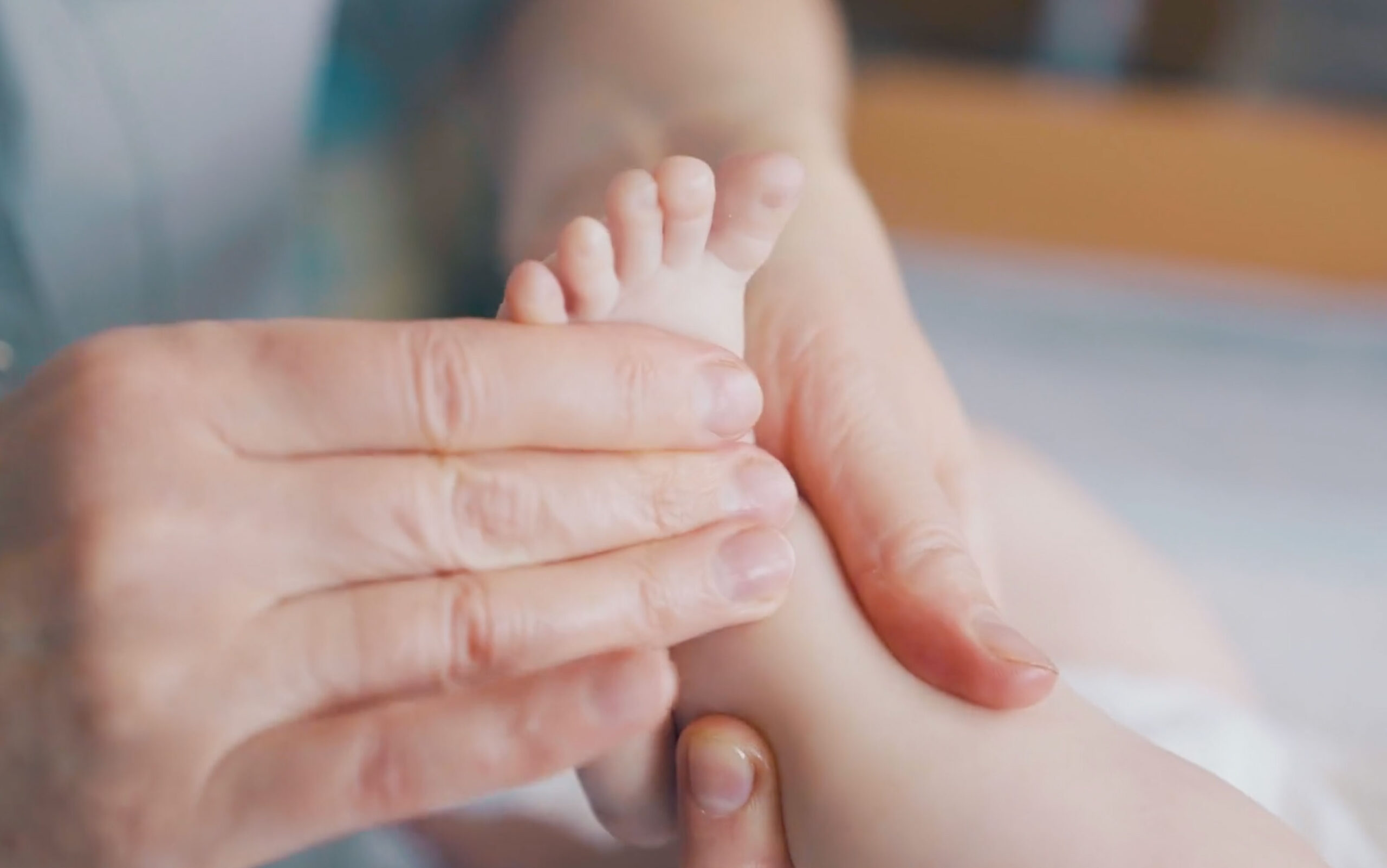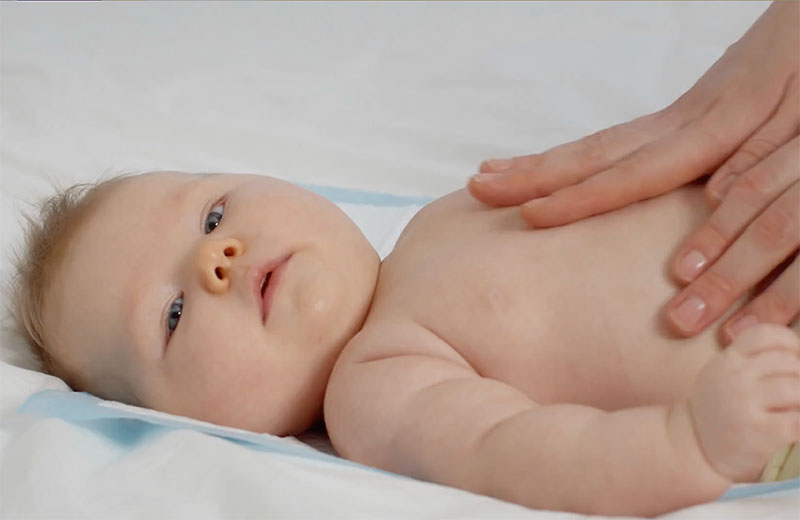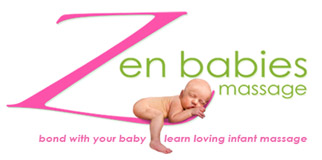Health Benefits of Infant Massage
In the past 35 years infant touch and massage has become recognized as a powerful means to promote infant development, attachment with caregivers, and a multitude of physiological and emotional benefits.

I like best, making my baby smile with massage. I see it helping us connect better and another tool to help her relax. — Alison

It is never too late to begin massage…
Whether your baby is a newborn or several years old, massage can bring immediate and lasting results. Expectant parents who take infant massage instruction in advance are ready to begin this wonderful loving touch right from the start. Infant Massage is a very old parenting practice that has been modernized and is in active use today supported by evidence-based research. There is recorded history of the use and practice of infant massage amongst many different cultures around the globe. It is only in the past 30 years that infant massage has begun to appear in the western world.
The 2 classes I took from Colleen have been a blessing in our lives. It has created such a wonderful bond between us that he still claps (age 2) after its over! — Jami
Ancient Art of Infant Massage
Mothers have been practicing the art of infant massage for centuries. Based on this historical fact, it is very clear that all babies should be massaged, touched and loved to promote their social-emotional-cognitive and physical development. As an early intervention strategy and therapeutic tool, infant massage is becoming a specialty therapy in the United States. Infant massage is being embraced by a wide variety of professionals who are incorporating it into their practices to help families cope with children with special needs as well as healthy full term newborns. Techniques are simple and effective and are most likely performed by parents and primary caregivers who have been taught by certified infant massage instructors. The approach is empowering and improves the parent-infant attachment process. There is a growing body of research that supports the therapeutic benefits. Infant massage is a crucial and routine part of infant care around the world and has the ability to create great benefits for both parents and the newborn.

Additional Benefits for Babies and for Parents/Caregivers
Benefits for infants and babies
- Provides a special time of communication that fosters love, compassion, and respect
- Improves general well-being
- Provides an intimate time for children to confide in parents
- Improves overall functioning of the gastrointestinal tract
- Promotes relaxation and helps babies self-regulate calm, which reduces crying
- Helps to normalize muscle tone
- Improves circulation
- Enhances immune system function
- Improves midline orientation
- Helps to improve sensory and body awareness
- Enhances neurological development
- Helps baby/child to sleep deeper and more soundly
- Helps to increase oxygen and nutrient flow to cells. Improves respiration
- Helps to improve pain managament; can relieve discomfort from teething,
- Helps with congestion, gas, and colic
- Enhances release of hormones in the body. The growth hormone can be stimulated which helps weight gain.
- Reduces levels of cortisol, the stress hormone
- Provides all of the essential indicators of intimate parent-infant bonding and attachment: eye-to-eye, touch, voice, smell, movement, and thermal regulation.
- Stimulates all of the physiological systems. Massage sparks the neurons in their brains to grow and branch out to encompass other neurons.
Benefits for parents and primary caregivers
- Provides all of the essential indicators of intimate parent-infant bonding and attachment: eye-to-eye, touch, voice, smell, movement, and thermal regulation.
- Encourages pre-verbal communication between caregiver and infant
- Helps parents feel more confident and competent in caring for their children
- Helps parents to ease their stress if they are a working parent and must be separated from their children for extended periods during the day
- Provides parents with one-on-one quiet time or interactive play with their children
- Creates a regular time of intimacy between parent and child.
- Increases parents’ self-esteem by reinforcing and enhancing their skills as parents, and validates their role
- Gives parents the tools for understanding their child’s unique rhythms and patterns
- Teaches parents how to read their infants’ cues and recognize their states of awareness
- Gives parents a special way to interact with their children who may be hospitalized. Helps parents feel a greater part of the healing process
- Daily massage helps parents to unwind and relax
- Provides a positive way for fathers to interact with their infants/children

